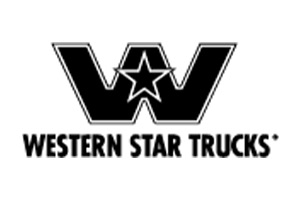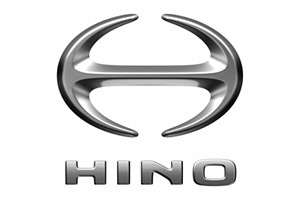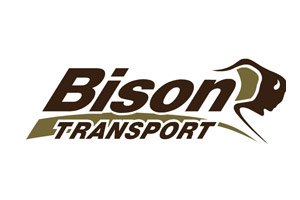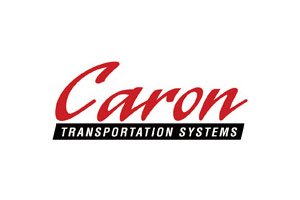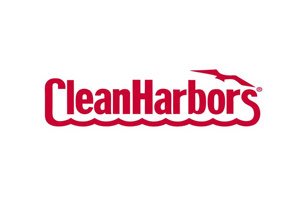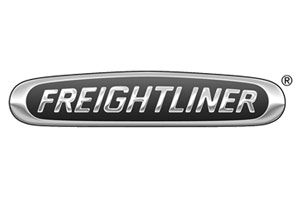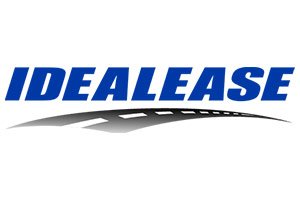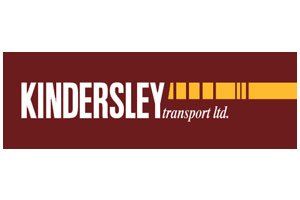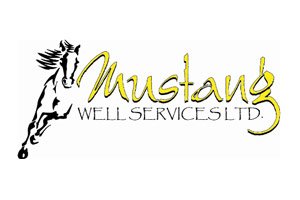Key Takeaways
-
Not all engine oils are the same, each has tailored properties which affect engine performance. To keep your truck performing efficiently, and to help prolong the life of your truck, always use the recommended oil type and viscosity.
-
Coolant degrades with time and regular coolant replacement is necessary to prevent engine overheating and internal corrosion. Monitor levels and condition over time.
-
If you use the wrong transmission fluid, it can cause low or high operational issues. Always adhere to your manufacturer’s recommendations to determine the right type for your truck’s system.
-
Myth 2 — Dark oil is a sign that you need an oil change Inspect it regularly and adhere to suggested oil change mileage for best engine performance and longevity.
-
Don’t fall prey to these common myths surrounding truck parts and repairs, which can result in costly errors. Choose better quality parts, shop around for repair shops and avoid unnecessary repairs by being informed.
-
Proactive maintenance like routine tire, brake, and fluid inspections increases safety, saves you money, and prolongs the life of your truck. Follow their directions for optimum performance and longevity.
These truck repair myths only serve to create needless costs and keep vehicles from getting the upkeep they need. All too often, drivers believe in dealership repairs due to their perceived high-quality work. The reality is that independent mechanics often deliver just as dependable service at a better price.
Some think routine oil changes are needed every 5,000 kilometers, though modern engines and oils can often go longer based on manufacturer recommendations. Some think that using aftermarket parts voids warranties right out the door. In reality, all warranties allow these parts as long as they are safe and performed to the required level.
Clarifications such as these can save municipalities money and prevent costly delays on necessary repairs that can affect vehicle performance. By debunking these myths, we can help truck owners and operators make more informed decisions. This method saves their organization both time and money while ensuring their fleet remains in optimal condition.
Common Truck Repair Myths
Truck repair and maintenance are necessary to keep your trucks performing and safe over the long haul. Myths abound, and believing them could lead to expensive miscalculations. By understanding these common truck repair myths, truck owners can ensure they are making smart decisions to keep their trucks on the road.
1. Engine Oils Are All the Same
Myth #3 Engine oil is engine oil, who cares?
Advantages Of Each Type
Conventional, synthetic and synthetic-blend oils are designed for different purposes. As an example, synthetic oils have superior temperature stability and resistance to breakdown, making them a fitting choice for today’s high-performing engines.
Using the wrong oil can lead to decreased efficiency and increased wear. Diesel trucks operate with more low-ash oils such as API CK-4 to safeguard emissions systems. Oil viscosity also plays an important role—5W-30 is ideal for colder climates, whereas 15W-40 is more appropriate for heavy-duty engines operating in warmer climates.
As always, make sure to use manufacturer’s specifications for best results.
2. Coolant Never Needs Replacement
As coolant ages, it breaks down, losing its effectiveness in both regulating temperature and preventing corrosion. Ignoring coolant replacement will result in overheating and catastrophic engine damage.
Check levels frequently and change coolant every two to five years, depending on type. Keep an eye out for any discoloration or debris as indications of contamination. Sticking with OEM-approved coolants means you’ll have the right coolant in place, keeping everything in your truck protected.
3. Any Transmission Fluid Can Be Used
Transmission fluids are not all the same product. To illustrate, ATF+4 is used frequently in Ram trucks, but Ford vehicles may need Mercon V.
If you use an incompatible fluid you can cause your slip to slip or your gear to grind. Remember, as always, consult the owner’s manual and use the fluid they recommend. Manufacturers engineer these fluids for precise applications, maximizing performance and dependability.
4. Dark Oil Always Means Change
Dark oil isn’t necessarily a sin. Diesel engines darken oil quicker because of soot, but this isn’t a sign of failure.
Rather, consider your mileage, driving conditions, and use oil analysis to know when to change oil. Routine inspections allow for early detection of harmful particulates, ensuring the cleanliness of your entire engine system.
5. Water Replaces Washer Fluid
Water does not have the same cleaning agents that washer fluid has, and it freezes in the winter. Washer fluid is more effective at removing grime and does not leave streaking.
Be sure to use the appropriate fluid for your climate. Inspect windshield washer fluid levels monthly to ensure good visibility in all conditions.
6. Fuel Additives Solve All Problems
Fuel additives are a great way to improve performance, but they don’t address the big picture problems. For instance, cetane boosters make diesel ignite faster, and detergents are used to clean fuel injectors.
Overuse can be damaging to engines. Preventative maintenance, including changing your fuel filters, is still important.
7. Synthetic Oil Harms Older Engines
It is a myth that synthetic oil is unsafe for older engines. Synthetic oil is actually better at protecting older engines from wear.
It breaks down less easily than regular oils, extending engine life. Check with your mechanic to make sure you’ll be able to use one before making the switch.
8. Brake Fluid Never Requires Changing
Brake fluid is hygroscopic, which means it absorbs moisture over time, making it less effective. Change it every two to three years or when it’s dark.
Symptoms such as spongy brakes or loss of stopping power are a sign that fluid is leaking. Consistent and proper maintenance is the best way to protect yourself and others.
9. Overfilled Fluids Are Not Harmful
If you overfill, you run the risk of pretty severe leaks or even system damage. For example, overfilling your engine oil can put stress on seals.
Check fluid levels regularly and adhere to manufacturer recommendations to prevent overfilling.
10. Power Steering Fluid Is Maintenance-Free
Power steering fluid degrades over time and will need replacing. Watch out for signs such as poor maneuverability or squealing sounds.
Make it a habit to check them during routine maintenance to provide the best possible steering performance.
Misconceptions About Parts and Repairs
When it comes to truck parts and repairs, misconceptions can result in poor decisions that waste lots of money. Getting beyond the simple misconceptions about parts and repair options means making smarter decisions and saving more money over time.
All Parts Offer the Same Quality
Misconception #2 All parts are the same. OEM parts, or original equipment manufacturer parts, are manufactured by the original manufacturer and ensure parts compatibility and reliability. The quality of aftermarket parts is all over the map, with some of them providing comparable performance to OE while others risk repeated breakdowns.
Take, for example, low-quality brake pads that wear out more quickly and cost you more in the long-run.
Criteria for Evaluating Part Quality:
-
Material and durability
-
Warranty coverage
-
Manufacturer reputation
-
Compatibility with your truck
Choosing high-quality replacement parts reduces the risk of repeat problems and costly repairs, leading to a lower operating cost in the long run.
Dealerships Are the Only Repair Option
Though dealerships are your one-stop-shop for OEM parts and the latest diagnostic tools, independent shops may be more focused on specific repairs. Diesel engines, for instance, require highly trained mechanics equipped with special tools.
Independent shops often provide both better pricing and a more customized experience. Further, evaluate all shops by looking for certified technicians, online reviews and shop specialties to yield the best outcome.
Premium Fuel Always Improves Performance
Premium fuel is a waste of money for all but the engines that need higher octane levels. Using it when it isn’t needed wastes money, with no performance benefits to show for it.
What you need to know: Factors such as your engine type, driving conditions, and manufacturer recommendations will dictate your fuel needs. … and as always, consult your truck’s manual.
New Trucks Don’t Need Maintenance
Even new trucks require regular upkeep to prevent early onset failures. Simple things such as oil changes (5,000–7,500 miles) and emissions checks go a long way.
Ignoring these requirements can result in fines over $45,000 for failing to comply. Keep up with the maintenance schedule to save money over the years.
DIY Repairs Are Always Cost-Effective
DIY repairs may be best suited for simpler tasks, such as replacing filters or batteries. More complex repairs, especially those related to emissions systems or sensors, should be reserved for professionals.
Tools such as OTR Diagnostics can help you pinpoint problems. Just make sure you have the expertise before making any repairs.
|
OEM Parts |
Aftermarket Parts |
|---|---|
|
High compatibility |
Varied compatibility |
|
Longer lifespan |
Quality ranges widely |
|
Higher upfront cost |
Cost-effective options available |
|
Manufacturer warranty included |
Warranty depends on supplier |
Facts About Truck Maintenance
There’s more to truck maintenance than keeping your truck on the road. It saves you money, helps prolong the life of your truck, and keeps you safe while on the road. Consistent maintenance and a careful eye on key parts will help you avoid sudden failures and expensive repairs.
Below, we unpack the most important parts of truck maintenance so you can ensure you’re doing everything necessary.
Regular Maintenance Extends Truck Lifespan
Routine maintenance is one of the most important factors in maximizing a truck’s lifespan. Flushing fluids, replacing filters, and inspecting belts and hoses are relatively easy and nondisruptive maintenance tasks. Performing them can go a long way in preventing unnecessary damage to your rig.
For example, trucks that receive maintenance at regular 20,000-kilometer intervals have significantly fewer wear-related breakdowns as they age. It requires additional maintenance to properly care for the more complex diesel engines, but their durability makes the extra effort worth it.
Documenting all repairs and maintenance is key. This practice enables you to track frequency of repairs and identify patterns that could point to bigger problems.
-
Replace oil and filters
-
Check brakes and tires
-
Ensure proper coolant levels
-
Change transmission fluid on schedule
It’s cheaper to invest in regular maintenance to begin with than pay for costly repairs down the line. Plus, a well-maintained truck holds its resale value, which is a big financial win.
Tire Care Is Critical for Safety
Tires are one of the most important aspects of your truck’s safety and fuel efficiency. Keeping up with tire pressure checks, tread depth checks, and alignment helps give your truck better handling and performance.
Rotating tires every 10,000 kilometers helps prevent uneven wear and keeping tires properly inflated improves fuel efficiency by 3.3 percent on average. If you’re finding cracks, bulges or overly worn treads, it’s time to replace them.
-
Inspect air pressure on a weekly basis
-
Rotate tires regularly according to schedule
-
Remove tires that have noticeable wear or damage
-
Add winter tires to your maintenance list if you live in a climate prone to icy conditions.
In addition to ensuring safe operations, proper tire care saves money in the long run through increased mileage and longer tire life.
Oil Changes Should Follow Guidelines
Out are the days of oil changes every 5,000 kms. Modern trucks, depending on their engine and oil type, can now go up to 12,000 kilometers or more between changes. Following the manufacturer’s maintenance recommendations will help maximize engine life and performance.
Diesel engines in particular see a big return on using high-quality synthetics, which improve efficiency while reducing deposits.
-
Set a reminder schedule
-
Keep a maintenance log
-
Send schedule service reminders at intervals of no more than 12,000 kilometers
Making the switch to a premium oil will help protect your engine and improve your fuel economy. That makes it a wise investment that saves you money over time.
Brake Repairs Shouldn’t Be Ignored
Brakes are a key safety component, and brake maintenance should never be deferred. Signs such as squealing sounds, shaking, or a loss of braking ability are indicators that it's imperative to take action right away.
Routine inspections will help identify problems before they occur, like when brake pads are worn down or brake fluid is leaking.
-
Bad brake pads
-
Repair rubbed in rotors
-
Fluid leaks or low fluid levels
When brake maintenance is ignored, the potential for catastrophic accidents rises significantly. By staying on top of your brake maintenance, your brakes will be more dependable, helping to keep you and those around you safe while driving.
Coolant Replacement Is a Must
Coolant is another important fluid that helps maintain engine temperature. Using old or contaminated coolant can contribute to overheating, which can cause serious engine damage.
Monitoring coolant levels and replacing them according to the manufacturer’s maintenance schedule, usually around every 40,000 kilometers, can help the system work properly.
-
Keep an eye on levels during regular maintenance checks.
-
Check for rust or a dark discoloration in the fluid.
-
Provide regular flush and replacement schedule.
Failing to maintain coolant can lead to expensive engine overhauls. Some basic upkeep will keep all the major problems away.
Risks of Ignoring Professional Expertise
When it comes to truck repairs, the devil is in the details and ignoring the professional expertise can set you up for unintended consequences. From safety hazards to increased expenses, knowing the potential risks at play leads to better, more informed decisions.
Poor Repairs Can Worsen Problems
Poorly executed repairs tend to worsen over time, further compromising performance. For instance, if a brake system is not repaired correctly it could lead to premature wear on other components, requiring costlier repairs in the future.
Following a poor quality fix can lead to road dangers such as tire alignment causing a loss of control in severe conditions. Preventing issues before they occur is important. Putting off a windshield chip fix, for example, leads to a complete replacement.
Use this checklist for evaluating repair quality:
-
Verify technician certifications.
-
Inspect the replaced parts for proper fit.
-
Test the vehicle post-repair for smooth operation.
Repair Shops Differ in Quality
Not all repair shops employ this level of expertise. Not doing the necessary legwork can lead to disastrous results. Factors to consider include:
-
Certified technicians with brand-specific training.
-
Transparent pricing and warranties.
-
Positive reviews and word-of-mouth recommendations.
Misjudging Engine Noises Can Be Costly
Any unusual engine sounds or noises are a sign of a serious issue. For example, rapping sounds may indicate that the bearings are shot, and squeaking may indicate a belt problem.
Here's a quick checklist:
-
Rattling: Exhaust system looseness.
-
Whistling: Vacuum leaks.
-
Grinding: Transmission trouble.
Harsh Conditions Demand Extra Attention
Trucks working in extreme climates require additional wear-and-tear maintenance. Parts, such as batteries and tires, degrade more quickly in cold or hot weather.
Routine inspections catch damage as soon as it occurs, which is far less time consuming and expensive to repair. Tips include:
-
Check fluid levels more often.
-
Rotate tires every 10,000 kilometers.
-
Replace air filters regularly.
Benefits of Debunking Myths
Truck maintenance myths aren’t just harmless myths—they can create thousands of dollars in unnecessary maintenance costs, time wasted, and potentially unsafe conditions. By dispelling these myths, truck owners can replace fiction with reality. This method allows them to make more informed decisions, protect their bottom line, and improve both the performance and lifespan of their vehicle.
Let’s take a look at how knowing the facts surrounding truck care can provide real-world advantages.
Save Money on Repairs and Maintenance
Proactive maintenance is one of the most powerful tools we have to lower the cost of future repairs. Routine maintenance identifies minor problems before they develop into major, expensive repairs. When you commit to a regular schedule, you’re ensuring costly breakdowns won’t sideline your truck.
By routinely checking for tire wear, you can avoid premature damage. Similarly, changing your oil on schedule helps prevent harm to your engine and suspension.
Cost-Saving Maintenance Practices Checklist:
-
Monitor tire pressure weekly to improve fuel efficiency.
-
Change air filters every six months for quicker engine starts.
-
Inspect brake pads frequently to reduce rotor damage.
Preventive care saves truck owners tens of thousands of dollars in the long run. As much as 90% of large scale repairs are a result of failure to keep up with regular maintenance, so the future savings are significant.
Improve Truck Performance and Longevity
Well-maintained trucks are safer and more efficient on the road, providing a swifter ride and consistent performance. Preventive maintenance such as lubricating moving parts or decarbonizing the fuel system greatly increases the affect engine responsiveness and performance.
Whether it’s machinery, tools, or vehicles, investing in quality parts saves money in the long run. For instance, premium-quality brake pads yield better stopping power and last longer.
In the long run, these small investments save key components, gaining the truck years of useful life.
Performance-Enhancing Maintenance Tasks:
-
Rotate tires every 10,000 kilometers to ensure even wear.
-
Flush the cooling system annually to prevent overheating.
-
Check suspension components semi-annually for optimal handling.
Avoid Unnecessary Repairs or Costs
Most repair costs are easily preventable by understanding common mistakes, such as following old recommendations or neglecting inspections. Routine checks catch small problems, like a small belt or gasket leak, before they become major safety concerns or require costly repairs or replacements.
Checklist for Routine Maintenance:
-
Inspect hoses and belts for cracks every three months.
-
Test battery voltage quarterly to avoid sudden failures.
-
Review lights and signals for conformance with roadway safety.
Having records of past maintenance work performed is helpful as well. This practice helps truck owners keep track of service history, track down a pattern of problems, and eliminate unnecessary repairs.
Transparency breeds a level of trust between vehicle owners and independent repair shops that can make repair processes easier and less stressful.
Pro Tips for Truck Maintenance
We’ve compiled some maintenance pro tips to help get you back on track to maintain your trucks’ performance, safety and longevity. With a few simple steps and a strategic plan, truck owners can avoid the expense of major repairs and keep their vehicle healthy and trustworthy for the long haul.
Keep reading below as we explore the ins and outs of essential maintenance practices.
Follow Manufacturer’s Recommendations
Following the manufacturer’s maintenance schedule is a simple and effective way to ensure you get great performance and longevity from your truck investment. These guidelines will be specific to your make and model, making sure you’re focusing on what your vehicle specifically needs the most.
Examples include today’s trucks that can go 5,000 to 7,500 miles (8,000 to 12,000 kilometers) between oil changes, depending on oil formulation. Following this maintenance routine can help ensure your engine is running as reliably and efficiently as possible.
Establish a list of regular maintenance tasks, including oil changes, replacing fuel and air filters, and checking the entire drivetrain. Always use factory-approved parts and fluids.
Plus, using OEM components ensures compatibility with your other equipment and encourages peak performance every time. For instance, diesel engines are extremely sensitive and need highly specialized parts to ensure emissions standards are met while still maintaining peak performance.
Use Compatible Fluids and Parts
Using the right fluids and parts to do the job is very important, there is no getting around that. Using incompatible options can cause expensive damage or performance to suffer.
For example, diesel engines need a certain type of oil in order to avoid wear and tear and maintain proper function. To simplify maintenance, here’s a list of essentials:
-
Engine oil recommended by the manufacturer
-
OEM filters for oil, air, and fuel systems
-
Coolants designed for your truck’s engine type
Make sure to check the owner’s manual or trusted mechanic before replacing to prevent costly mistakes.
Inspect Tires and Brakes Regularly
Tires and brakes are the unsung heroes of road safety and vehicle performance. Routine inspections keep your vehicle from accruing preventable wear and tear, and putting you in a potential accident.
Monitor tire pressure, tread depth, and alignment on a bi-weekly or monthly basis. For brakes, check pads, rotors and fluid levels for optimal stopping power.
A simple checklist for tire and brake maintenance includes:
-
Rotating tires every 10,000 kilometers
-
Checking brake pads for thickness and signs of wear
-
Checking for uneven tire wear, a possible sign of alignment problems
Tackling these issues early on avoids bigger problems down the line and ensures your truck is always ready for the road.
Schedule Professional Check-Ups
Despite all your DIY diligence, professional check-ups are priceless. Diesel engines, for example, have separate maintenance expertise and mechanics have specialized tools and knowledge so keeping your truck up and running is key.
These services typically feature diagnostics, emissions checks, and comprehensive inspections to uncover hidden problems. Common procedures included in a truck’s routine check-up are fluid top-offs, engine tuning and brake system inspections.
Keeping a positive connection with a mechanic you trust helps you get solid service every time. This pro tip can save you from paying some of the large fines for violations like emissions non-compliance that can be more than $60,000.
Conclusion
Setting the record straight on common truck repair myths can help save you time, money, and stress. When you accept false misconceptions as truths, you run the risk of creating an even larger issue and incurring added expenses. When you understand the truth, you can make more informed decisions to improve your truck. Quality parts and experienced, dependable professionals help you get the most miles out of your vehicle safely. Routine care creates a truck you can count on, eliminating nasty surprises out on the road.
Consider maintenance an investment in safety and in performance. The truth is, a well-maintained truck lasts longer and does the job more efficiently. Don’t make assumptions and go with a name you can count on. Trusting tried-and-true advice from the pros keeps life simple and pleasant.
Prevent more tired truckers from being on our highways. Save all three by avoiding these truck repair myths. With reliable trucks, we’ll have safer and smarter roads going forward. Join us and start making smarter choices right now.
Frequently Asked Questions
Are all truck parts created equal?
Myth 2: All truck parts are interchangeable. Not all aftermarket parts are made the same. Look for parts that match or exceed OEM quality to ensure long-lasting durability and performance. Low-quality parts can result in more repeat repairs and increased expenses.

